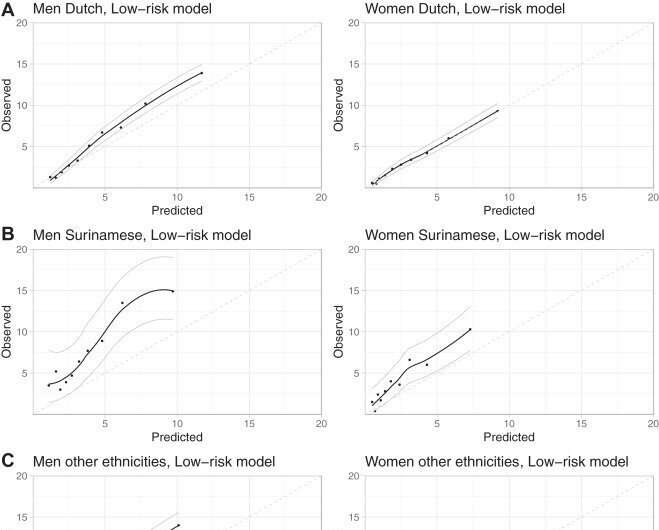This article has been reviewed according to Science X's editorial process and policies. Editors have highlighted the following attributes while ensuring the content's credibility:
fact-checked
peer-reviewed publication
trusted source
proofread
Study: Income and ethnicity are risk factors for cardiovascular disease

Dutch people with a low income are up to 1.5 times more at risk of a heart attack or stroke than their wealthier compatriots. Among Surinamese Hindus the risk is 1.9 times higher. This is according to research by the LUMC and the HagaZiekenhuis hospital. Dutch doctors do not look at these factors. The study was published in eClinicalMedicine.
For years cardiovascular disease has been the leading cause of death worldwide. It is caused by, among others, high cholesterol, high blood pressure and smoking. A new study by GP and Ph.D. candidate Janet Kist, Professor Mattijs Numans, Professor Rolf Groenwold (all from the LUMC) and Ronne Mairuhu from HagaZiekenhuis shows that a low income further increases the risk of cardiovascular disease. Patients' ethnicity also plays an important role. This is significant because most doctors do not currently include income and ethnicity as risk factors.
To determine whether someone is at increased risk for cardiovascular disease, doctors mainly look at factors such as high cholesterol, high blood pressure and smoking. Using a nationally approved risk calculator, they advise their patients on whether early medication is needed to prevent future cardiovascular problems.
In countries such as England and Scotland, socioeconomic status and ethnicity have been included as risk factors for cardiovascular disease for 10 to 15 years already. As far as the researchers are concerned, the same should soon happen in the Netherlands. They argue that early treatment with statins, for example, can help patients with low socioeconomic status or of Surinamese Hindustani descent prevent cardiovascular disease in the short term. "Then the risk of stroke decreases by up to 22%," says Kist. "For heart attacks, it is 33% even. The effect may be even greater in the longer term."
More important, say Kist and colleagues, is to look at social change and patient lifestyle. "If you live in poverty, it is practically impossible to eat healthily," says Mairuhu. "Healthy food is simply too expensive. We can't solve this in the consulting room. This is really a job for politicians."
Kist and the research team looked at data from 155,000 people aged between 40 and 70 from the region of The Hague and Zoetermeer. They linked figures from hospitals and GP practices to data from Statistics Netherlands (CBS). "This made it clear that cardiovascular diseases are 1.5 times more common in low-income patients," says Kist. "The possible causes are an unhealthy lifestyle and stress. What also stood out was that cardiovascular diseases are 1.9 times more common in people from a Surinamese Hindustani background. This is partly due to genetic factors."
More information: Janet M. Kist et al, SCORE2 cardiovascular risk prediction models in an ethnic and socioeconomic diverse population in the Netherlands: an external validation study, eClinicalMedicine (2023). DOI: 10.1016/j.eclinm.2023.101862



















